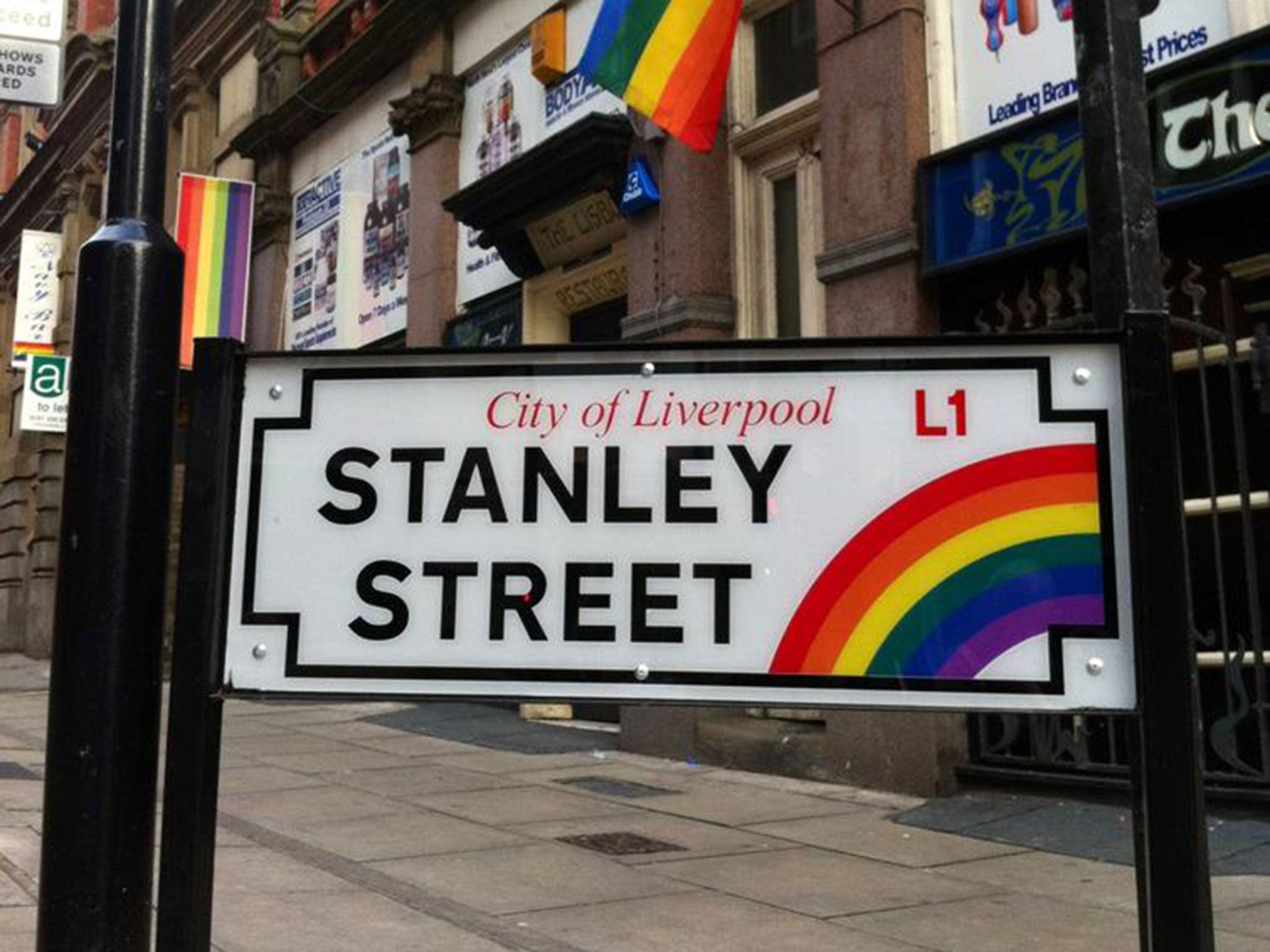Lap dancing club in Liverpool's gay quarter meets fierce opposition from locals over fears for growing LGBT community
Since 2008 the area has generated millions of pounds worth of investment from businesses seeking a share of the pink pound

Your support helps us to tell the story
From reproductive rights to climate change to Big Tech, The Independent is on the ground when the story is developing. Whether it's investigating the financials of Elon Musk's pro-Trump PAC or producing our latest documentary, 'The A Word', which shines a light on the American women fighting for reproductive rights, we know how important it is to parse out the facts from the messaging.
At such a critical moment in US history, we need reporters on the ground. Your donation allows us to keep sending journalists to speak to both sides of the story.
The Independent is trusted by Americans across the entire political spectrum. And unlike many other quality news outlets, we choose not to lock Americans out of our reporting and analysis with paywalls. We believe quality journalism should be available to everyone, paid for by those who can afford it.
Your support makes all the difference.The opening of a new lap dancing club in Liverpool’s gay quarter could lead to a rise in homophobic hate crime, it has been claimed.
Local residents and businesses fiercely opposed an application to site the venue in Stanley Street at the heart of the district claiming it could lead to a culture clash between gay revellers and heterosexual all-male stag parties undermining the area’s growing reputation as a safe destination for the LGBT community.
The decision to give the go-ahead to Paradise brings the number of sex entertainment venues in and around the quarter to four prompting fears the cluster could lead to groups of men going from one to another.
Since it was established in 2008 the area has spawned a vibrant café culture with drag queens parading in the streets, gay and mixed nightclubs as well as new restaurants and hotels in the pedestrianised night time zone.
It has generated millions of pounds worth of investment from businesses seeking a share of the pink pound which had traditionally gravitated towards Manchester’s gay village.
The development also helped reverse a reputation for intolerance in Liverpool which was the last major British city to host a gay pride event. The murder of hairdresser Michael Causer, 18, in 2008 and a brutal attack on a trainee police officer as he left a gay bar the following year caused outrage on Merseyside with campaigners holding vigils in nightclubs and on the streets.
Local Councillor Nick Small, who opposed the move, said there was no suggestion the new club would be improperly run but argued it was simply out of place and could damage the atmosphere and long term development of the area.
“We have made huge strides in the last 10-15 years in turning round a quite homophobic city into one that celebrates diversity,” he said. “I hope I am wrong but I believe this could see hate crime in the area increase,” he added.
Mr Small said he would be monitoring what happens over the course of the next 12 months. “It is not having a go at the owners or the people that go there it is just a very different type of premises that does not sit well in the gay quarter,” he said.
A 2008 report by Stormbreak, a specialist research agency, found that nearly six out of 10 lesbian, gay, bisexuals and transgender people had experienced homophobic crime in Liverpool - a figure that was nearly 12 per cent higher than London.
But since then there has been a determined effort to challenge intolerance. In 2012 Liverpool Football Club became the first Premiership side to be represented at a Gay Pride march.
Lawyers for Paradise successfully argued that straight businesses would not be able to object to a gay bar opening in their midst on the same grounds.
Director Liam Scully said the new club would have a gay manager and denied it was only there for heterosexual men. “The suggestion that we are opening up a heterosexual club in a gay area does not sit comfortably with me,” he told the Liverpool Echo.
Fellow director Lesley O’Neil told the newspaper: “We are so excited about this venue. We feel our business can fit side by side with the others and benefit and contribute to the local economy.”
The decision takes the number of “sexual entertainment venues” in the city centre to eight - the maximum set by the council after local authorities were granted powers to limit the number of such establishments.
Join our commenting forum
Join thought-provoking conversations, follow other Independent readers and see their replies
Comments